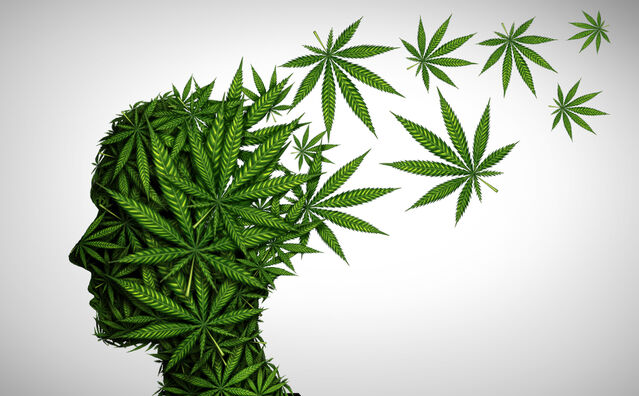Psychopharmacology
One Way Using Cannabis for Migraine Headaches Might Backfire
Cannabis use may increase chronic migraine patients’ odds of rebound headaches.
Posted March 1, 2021 Reviewed by Lybi Ma

- Headaches from medication overuse, also known as "rebound headaches," have previously been linked to excessive use of over-the-counter analgesics or anti-migraine prescription drugs used during a migraine attack.
- Chronic migraine patients using cannabis are six times more likely to experience rebound headaches than their counterparts who do not use cannabis products.
- Advising chronic migraine patients to limit or avoid cannabis use may decrease their risk of such headaches.
Using cannabis to alleviate migraine headache symptoms may be associated with an increased risk of medication overuse headaches (a.k.a. "rebound headaches"), according to preliminary research findings from Stanford University School of Medicine.
A preprint of this paper (Zhang & Woldemanuel, 2021) has not yet completed peer review at a journal, but the abstract will be presented virtually at the American Academy of Neurology 73rd Annual Meeting from April 17 to 22, 2021.
For this preliminary study, Niushen Zhang and Yohannes Woldeamanuel's objective was to "examine whether cannabis use predicts medication overuse headache (MOH) in chronic migraine (CM) patients." Zhang and Woldeamanuel analyzed the records of 368 people who experienced chronic migraines for at least a year; their research data was provided by STARR, "Stanford Medicine Research Data Repository."
Of these 368 people, 150 self-identified as cannabis users. "The different forms of cannabis products used by [chronic migraine patients] included inhalation products (joints, electronic vaping devices), orally ingested products (cookies, tablets, gummies, tinctures, mints), topical products (oils, ointments, creams, patches)," the authors explain.
Of the 368 study subjects, 212 patients had medication overuse headaches; 156 did not. "We found that the presence of cannabis use significantly increased the odds of headaches from medication overuse in patients with chronic migraine," the authors write.
Notably, data analysis showed that chronic migraine patients using cannabis were six times more likely to have MOH "rebound headaches" than their counterparts who did not use cannabis. Children under 18 were excluded from the data set.
"Many people with chronic migraine are already self-medicating with cannabis, and there is some evidence that cannabis can help treat other types of chronic pain," Zhang said in a news release. "However, we found that people who were using cannabis had significantly increased odds of also having medication overuse headache, or rebound headache, compared to people who were not using cannabis."
According to the authors, this case-referent study is the first of its kind to assess the link between rebound headaches and cannabis use in chronic migraine patients. However, they also note that because their research relied on retrospective hospital-based data from STARR, the findings may not be representative of the general chronic migraine population. "Likewise, causative analysis cannot be confirmed based on our results," the authors state.
Longitudinal studies are needed to determine if there is a cause and effect relationship between cannabis use and medication overuse headache in chronic migraine patients.
"Cannabis use significantly contributes to the prevalence of medication overuse headache in chronic migraine [patients]. The bidirectional cannabis-opioid association was observed—use of one increased use of the other," the authors conclude. "Advising chronic migraine patients with medication overuse headache to reduce cannabis use may help treat [rebound headache] effectively."
References
Niushen Zhang and Yohannes W. Woldeamanuel. "Medication Overuse Headache in Chronic Migraine Patients Using Cannabis: a Case-Referent Study*." (Preprint first posted: February 08, 2021) DOI: 10.21203/rs.3.rs-185874/v1
*The abstract for this paper will be presented at the American Academy of Neurology's 73rd Annual Meeting being held virtually April 17-22, 2021.


